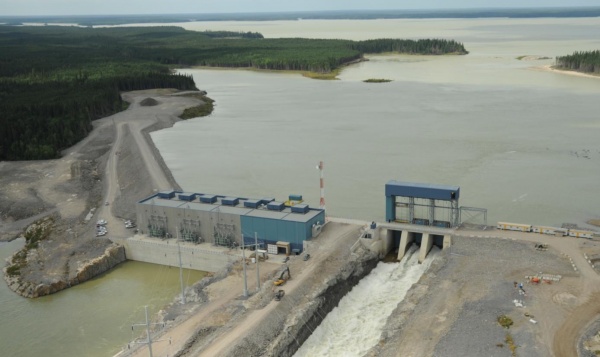Political will needed for greenhouse gas reduction
Winnipeg Free Press - November 6th, 2018 - Ray Hesslein
If humans are to sensibly reduce climate change by moving to a world economy low in fossil fuel combustion and methane release, we must accept that some areas and populations will be more easily able to change than others. Because of our natural hydrologic environment and our historic development of those resources for electrical production, Manitoba has achieved a low per-capita output of greenhouse gases (GHGs) and is well positioned to further lower that output.
The development of those resources has not been without large costs, including displacement of Indigenous populations, damage to fisheries and social disruptions created by massive worksites. We have certainly paid for our abundance of electricity, and we now have a choice: we can try to petulantly take credit for our hard-won advantage in the fight to lower GHG outputs, or we can take advantage of the opportunities that abundance provides us in further lowering those GHGoutputs, and moving into a cleaner, more sustainable future for ourselves and our global community.
Manitobans are known for their per-capita giving. We give more than our share to charities; why would we fight the opportunity to do more than our share for GHGreduction when we have such abundant resources?
I recently attended a guest speaker series sponsored by Science First; the event was titled “Manitoba’s Carbon Tax: Investing in Our Future?” By chance, it had been scheduled for Oct. 3, which turned out to be the day that Premier Brian Pallister announced the cancellation of Manitoba’s carbon tax.
That changed the tenor of the discussion; however, the guest panel, which included representatives from industry, environmental NGOs, university and the legislature, agreed on a number of points. First, there needs to be a “carrot” as well as a “stick” to promote change. Just punishing people with a carbon tax is not enough; the plan also needs to invest at least some of the tax collected toward promoting the change. This investment not only financially assists change, but shows the public that there is positive commitment to change. Second, the tax and investment plan needs to be stable into the future. No company or individual wants to make major capital investments to improve energy efficiency and reduce GHGs if they are looking at an uncertain future. The battle between the provincial and federal governments over the last few years has created an unproductive aura of uncertainty.
Third, there are many technical changes that can be instituted in Manitoba that can contribute to decreasing GHGs and improving Manitobans’ quality of life. However, given the political battle between the provincial and federal governments, can governments be trusted with the creation and execution of a fossil-fuel reduction plan?
I suggest that rather than allowing the governments to set the priorities for the expenditures, in competition with their other commitments to tax reduction, service modifications and, frankly, winning elections (a short-term goal unsuitable to proper GHG reduction programs), perhaps we need an independent non-profit organization to manage the program for fossil-fuel reduction and technical advance.
We have so many opportunities for reduction of GHGs in Manitoba. We can electrify our buses (while also promoting one of the biggest and best manufacturers of electric buses, New Flyer Industries, located in our own city). We can support better programs of improved insulation for buildings, allowing cost-effective conversion to electric heating. We can go back to promoting the installation of geothermal heating or air-to-air heat pumps in new developments.
We can support conversion to electric autos by providing purchase subsidies (loans or grants), and by committing to a network of rapid-charging stations in the province. We can assist transportation industries, such as the Manitoba trucking industry, to improve long-haul efficiencies and convert short-haul deliveries to electric power, thus lowering GHGs and making the companies more competitive.
We can better manage our landfills, to recover and use methane, and we can better manage our farm wastes to reduce methane release. This incomplete list of technical changes will get longer and better if we can just create a climate of stability and show commitment to change.
--
Ray Hesslein is a retired research scientist who worked for Fisheries and Oceans and served as scientist-in-charge at the Experimental Lakes Area (now ELA-IISD). He currently serves on the ELA-IISD research advisory board, the board of directors of Canadian Parks and Wilderness Society (Manitoba branch) and the Lake Winnipeg Foundation Science Advisory.

